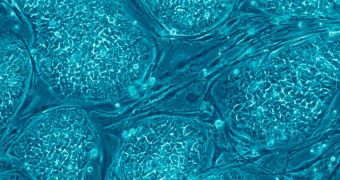A group of researchers at the New York Stem Cell Foundation announces the development of a new way of using cloning-related technology to the field of regenerative medicine. The investigators say that the methods they applies allowed human eggs to create primitive, embryonic-like stem cells.
The thing that really stands out from this research is that the reprogrammed cells were fully differentiated, developed and adult cells, already fulfilling their well-established function as part of larger systems.
The fact that they could be returned to such an early stage using existing technologies – currently in use for cloning animals – is tremendous news. In the near future, experts might be able to push a large number of areas of stem cell research further than ever before.
The use of embryonic stem cells for research is highly-debated, both in the United States and abroad. In order to obtain the best such cells, experts have to take them from a viable human embryo. Needless to say, religious groups oppose this practice with everything they've got.
But the new reprogramming approach could settle this issue, allowing everyone to have peace of mind and move along with their lives. Investigators with the study team published details of how their approach works in the October 6 issue of the top scientific journal Nature, Science News reports.
Regenerative medicine holds great potential for treating a wide variety of diseases. Being able to grow new cells, tissues and organs from a patient's own cells would ensure that compatibility levels always remain at 100 percent.
In turn, this would eliminate the need to use immunosuppressive medication, which are currently given to all transplant patients to avoid rejection. The new study opens the way towards this type of medicine, hopefully wider than other researches that came before have.
At first, the team had to know for sure whether human egg cells had the ability to contribute to stem cell reprogramming. Eggs from other species have been known to have this ability, but no study was ever conducted on humans before. The team was led by NYSCF expert Dieter Egli.
The work is still in its earliest stages, the experts admit. The newly-obtained cells have three sets of chromosome rather than the usual two, which means that they cannot be used in actual, transplantable tissues or organs.
However, further improvements in the reprogramming method will ensure that this becomes the case.

 14 DAY TRIAL //
14 DAY TRIAL //